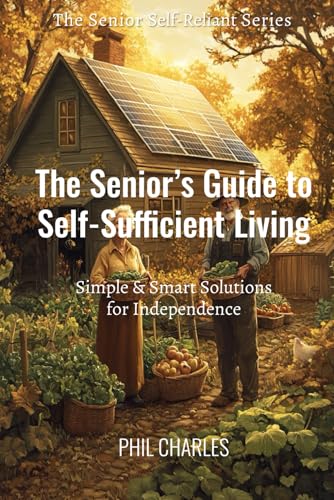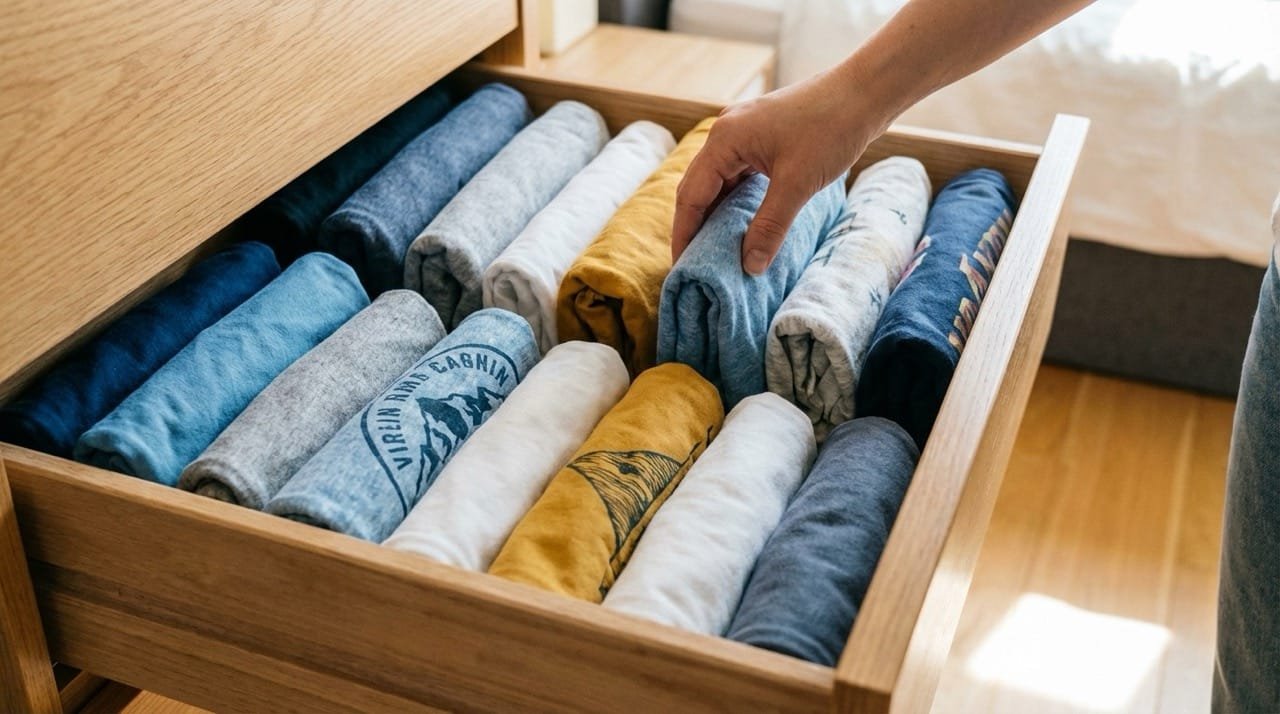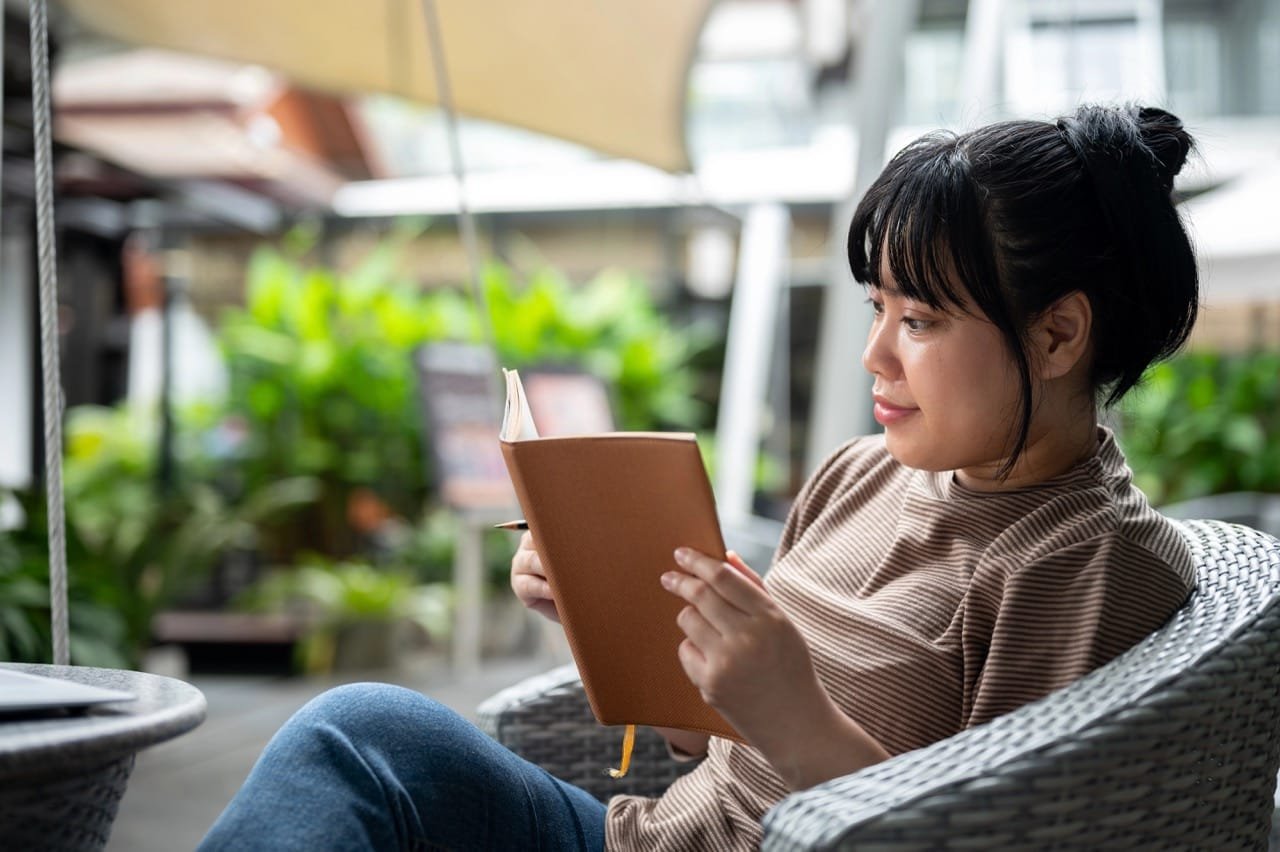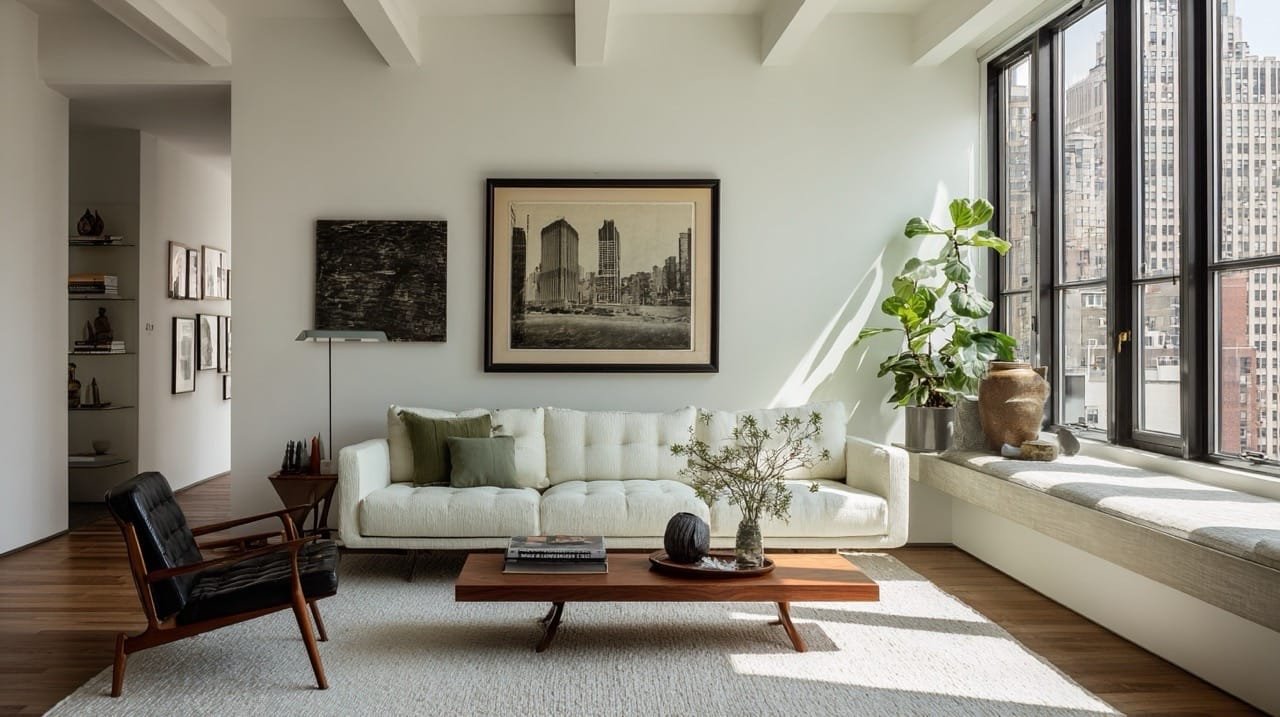For many older adults, simplifying becomes not just a practical choice or necessity, but a path to greater contentment. Simple living for seniors means intentionally reducing the unnecessary to make room for the essential.
Making Senior Living Easy
Simple living guides often emphasise quality over quantity because it ties in so nicely with minimalism. And that, in turn, creates space for meaningful experiences as opposed to the necessity of maintaining unnecessary possessions. In such, many older adults find themselves naturally turning to minimalism as a way to reclaim some time and energy as they start thinking about their next chapter in life.
By no means does this lifestyle mean living in a stark, empty home (unless you wants to, of course). Think of it instead as surrounding yourself with items that serve a purpose or bring genuine joy. A lot of folks find that possessions accumulated over decades simply no longer fit their current lifestyle as they get older.
A minimalist approach helps with daily living by reducing the physical demands of maintaining a cluttered home, and it’s been shown that tidiness even increases mental clarity.
With fewer items to manage, everyday life becomes easier, which subsequently helps supports independence longer. Living with less ultimately allows active agers to focus on the things they genuinely care about for a fulfilling and purposeful life.
Streamline and Declutter Your Living Space
Simple living for seniors begins with intentionally reducing clutter at home. Now, I know that just thinking of the physical process of decluttering can feel overwhelming, but I promise that taking it one room (or even one drawer!) at a time makes it manageable and can really help simplify your life.
Begin with areas that cause the most daily frustration. Kitchen countertops, entryways, and bathroom cabinets are usually good starting points. Sort items into categories: keep, donate, gift, or discard. This simple strategy helps you identify the important things in life worth keeping.
Check out the decluttering hub here at Tidymalism for lots of great tips and different methods to get organised and even downsize!
The emotional aspect of minimising possessions often proves most challenging. Family photos, heirlooms, and sentimental objects all carry memories. Consider keeping one representative item from each category rather than entire collections. This helps clear the clutter while preserving what matters most. Don’t forget you can take pictures of things, too, before you let them go!
Creating a clutter-free environment supports both physical safety and peace of mind. With fewer items to navigate around, the risk of falls decreases. I had a horrible accident at home myself a couple years ago, and it’s true: taking a spill is incredibly dangerous the older you get!
Lots of people also feel mentally lighter after organising their living spaces. Experiencing a sense of liberation from all that stuff can definitely enhance your quality of life. As a side note, it also gives you a great feeling of self-accomplishment.
Simplify Your Daily Routine
A minimalist lifestyle naturally extends to how you structure your days. Simple living encourages thoughtfully evaluating which activities are still important to you in modern life, and which might just be the source of unnecessary complications.

The best simple approaches often involve establishing consistent routines.
Morning routines benefit greatly from simplification. Many find that preparing clothing the night before and planning meals ahead reduces daily stress and gives them back some time to focus on more enjoyable activities.
Let’s also talk technology for a moment. It can both complicate life and make things easier. Think about which devices genuinely improve your day-to-day and which create frustration. You might need far fewer digital tools than all those marketing gurus on Facebook are telling you.
Time management, too, improves naturally when you start living simply. Without the distraction of excessive possessions or overwhelming schedules, you can prioritise activities that bring fulfillment. This goes for any age for that matter. By being more mindful of your time management and whom you share that time with, you may rediscover passions that fell by the wayside.
Embrace a Minimalist Money Mindset for Greater Financial Stability
Financial stability remains a big concern for most Gen-Xers and Boomers. The good news is that simple living makes it easier to manage money more effectively in your retirement years. When you start going down the minimalist living path, it gets easier to cut unnecessary expenses, and that automatically creates a bit of breathing room for fixed incomes.
With fewer possessions to maintain, repair costs diminish, too. Housing is still usually the largest expense though. You might find that as you get older, downsizing to a smaller living space is the way to go. The benefits to doing so extend beyond immediate savings.
I’m starting to consider this option for myself later on because a smaller place would just be easier to navigate, easier to keep clean, and there’s less space for impulse purchases that drain resources without adding value. I’m not quite of retirement age myself yet, but ever since my first low-buy challenge and getting intentional with my purchases, I’ve found much greater contentment with spending less on material goods and more on higher quality essential things or meaningful experiences. Life’s simple pleasures aren’t at the shopping mall, after all.
Smart financial planning pairs naturally with minimalism. By clearly identifying your needs versus wants, you’ll make better choices about resource allocation. This practical approach helps stretch your retirement funds a bit further. Bonus side effect: sustainability. You’ll be reducing waste and minimising your environmental footprint through less waste overall.
Focus on Health
Physical and mental health are obviously also top priorities for older folks, and living more simply gives you more breathing room for your own wellbeing so you can better focus on health.
Example? Preparing simple, nutritious meals is easier when you have an uncluttered kitchen. Plus a simple, healthy diet focussed on wholefoods can do wonders for your digestion, mood, and energy levels.

Regular exercise also fits naturally into a simplified lifestyle. Walking in neighborhood parks, doing basic stretching routines, or taking senior fitness classes require minimal equipment and bring major health benefits and, subsequently, a higher quality of life.
Likewise, self-care routines gain importance as we age, and adequate rest, hydration, and stress management often prove more valuable for our overall well-being than complex or expensive wellness regimens.
It’s notable that mental health can improve when minimalism and mindfulness are adopted. Slowing down and having fewer things screaming for your attention leaves you with more mental energy for activities that support cognitive health. Things like reading, socialising, and learning new skills, which you’re never to old for! I honestly think this lifestyle can help maintain mental sharpness and emotional balance.
Connections That Count
Meaningful relationships are fulfilling, and when you have more time on your hands because you’ve scaled back on the superfluous stuff, you have extra time and energy for nurturing important connections with family and friends.
Simple things like regular phone calls, taking walks together with someone, or scheduling video chats with loved ones far away are genuinely satisfying. A study done at Harvard over the course of nearly 80 years found close relationships are the strongest predictors of long and happy lives!
If you live alone, community activities can provide a sense of purpose and connection. Volunteer work that aligns with your personal values can be immensely fulfilling! Even modest contributions of time or expertise can create meaningful impact and expand your social network a bit.
Simple Living for Seniors
I wanted to give you some examples in this post of how adopting a few simple living principles can offer practical benefits across all life dimensions as you age. I’m in my fifties, and since I started going down this path myself, I’ve experienced first-hand how minimalism creates spaces that function better, routines that support my independence, and financial habits that have most definitely done a lot to bolster a better sense of security. It’s been a very worthwhile transition so far!
The journey toward simplicity happens gradually. I’ve found the greatest success by implementing small changes consistently rather than attempting complete lifestyle transformations. A little tweak here, building a new habit there: it all compounds, and I don’t think it’s ever really too late of a chapter in life to make a change.















Leave a Reply